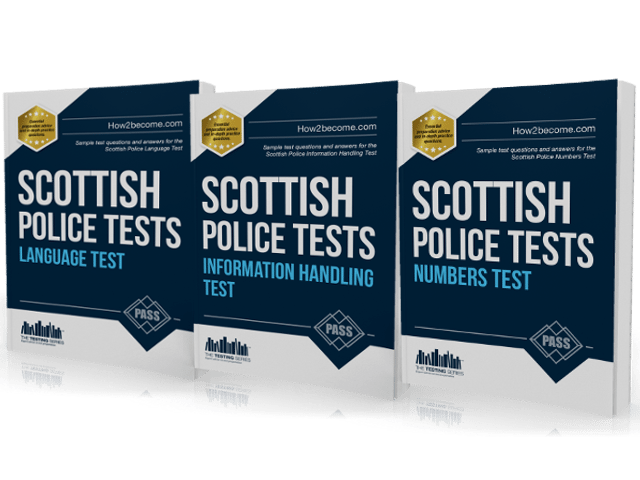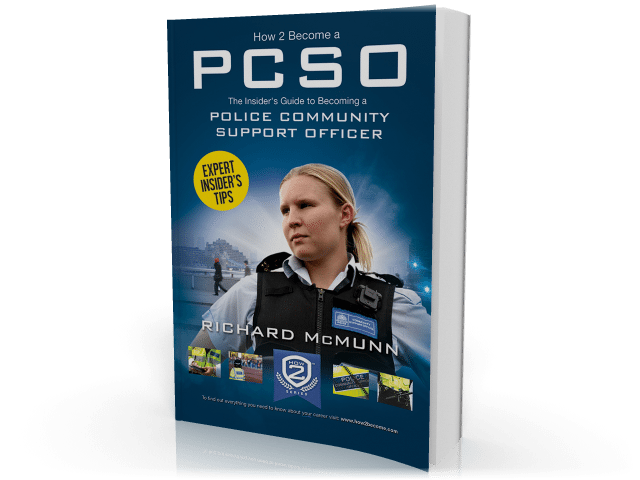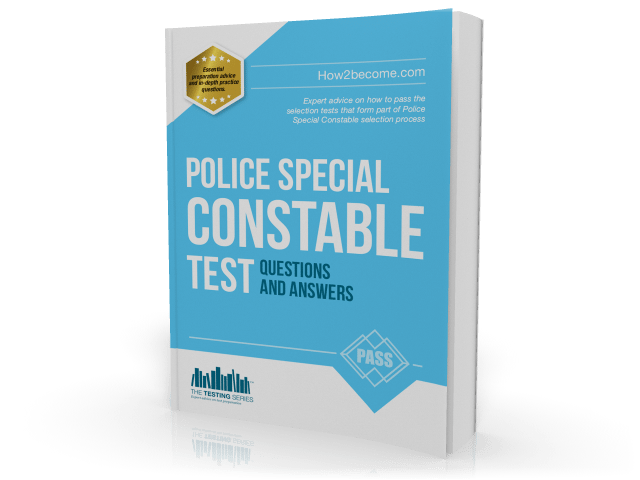Have you ever wondered how to join the UK Police Service? For newcomers, the process of police officer recruitment can be quite intimidating. With a wide range of tests, units and different constabularies to choose from, it’s hard to know where to start looking or what the best option is for you. Well, you’re in luck. In this blog we’ll break down EVERYTHING that you need to know about police officer recruitment in the UK!
What do the UK Police do?
At present, there are 49 different police forces in the UK, with over 209,400 police officers based in England and Wales. The main aim of the police service is as follows:
- To reduce crime. Not only do the police work to reduce crime, but they also work to reduce the fear of crime itself.
- The biggest priority of the police is in public wellbeing. This doesn’t just extend to making the public actually safe, but making them feel safe too.
- The police also work to support victims of crime that has taken place, and support those who have witnessed crimes.
- By working in the local community, the police create a reassuring presence, which lowers the chances of crime being committed.
How do the Police reduce crime?
There are a number of ways in which the UK Police reduce crime. These include:
- Working as part of a team. As a police officer, you will spend most of your time working with at least one other person, and you’ll be part of the wider team of the police service. Crime cannot be solved by one person alone. It takes the collective work of the entire justice system. The police service are an integral part of this.
- Using cutting-edge technology. Working with the police will give you the chance to work with incredible crime solving equipment. In order to keep on top of modern day criminals, the police are constantly updating their methods and resources. This means that you’ll be given the opportunity to try new and exciting pieces of equipment.
- Generating respect from the community. As mentioned, working with the police is about more than just solving crime. It’s about reassuring members of the public that crime won’t happen full stop. Police officers can help to reduce crime by generating a healthy level of respect from the public for the law, and for officers such as yourself who are working to uphold it.
- Setting an example. Finally, it’s integral that police officers can set a great example for the general public. As an officer of the law, you have a responsibility to behave with integrity, dignity and authority at all times. You are the best example for the general public to follow on how they should behave; so make sure you take a professional approach to your work.
Police Officer Recruitment
So, what jobs are available in the UK police service? Let’s take an in-depth look!
Police Officers
As a police officer, you will be at the very forefront of crime investigations. In order to become a police officer, you will first need to complete a 2 year period, working on a probationary basis, as an operational constable. Following this period, you can either remain in operational duty, or opt for a more specialist branch of police work.
In terms of pay, police officer wages can vary according to the constabulary for which you are working, and whether you are specialising or not. Normally, you’ll start earning a wage of between £19,000 and £23,500, with this going up as you gain experience.
You can start your Police Officer career by purchasing our book on How To Become A Police Officer!
Police Community Support Officers (PCSO)
PCSOs don’t have complete police powers or responsibilities, but are still an extremely important part of the service. The powers and responsibilities that are granted to PCSOs largely depends on the constabulary to which they are employed. As a PCSO, you will be performing tasks such as:
- Working with people who have been effected by crime.
- Protecting the public from threats to their safety.
- Performing house-to-house enquiries/investigations.
Wages for PCSOs can vary, but generally starts around the £20,000 mark. PSCOs exist only in England and Wales respectively.
Our guide on How To Become A PCSO has all of the tips you need!
Special Constables
Special constables are unpaid volunteers, who help and support the police with their work. Specials are given full police powers, and will need to work a minimum period of time per month. They are an essential go-between for police in the local community, and while you won’t be paid for working a special, you will be reimbursed for any expenses that are incurred as a result of your voluntary work. You can find more information on Special Constable eligibility here http://www.policecouldyou.co.uk/documents/npia-01-20112835.pdf?view=Binary
Check out our guide on Special Constable Tests, to guarantee that you ace your exams!
Supporting Roles
Supporting roles with the police service are equally vital for its long term success. Supporting roles will vary depending on the constabulary to which you are applying, so you should make sure that you contact your local constabulary pre-application to find out which positions are available. The majority of these positions will be advertised online, but you may find more authoritative or senior positions via agencies or via contacting the constabulary directly.
Eligibility
In order to work as a police officer in the UK, you will need to meet a number of different criteria:
Age. The youngest age that you can apply for police officer recruitment is 18. There is no upper age limit for applicants, however most officers retire at the age of 60.
Nationality. Applicants for the police service must be: a British citizen, a commonwealth citizen, an EU national or a foreign national who has no restrictions on their staying in the UK. All applicants will be vetted to a comprehensive standard, and therefore you will need to wait for a considerable time before accepted for police officer recruitment.
Criminal record. As you might expect, your criminal record will have a definitive impact on the success of your application. Having a sustained number of crimes is likely to mean you being rejected altogether by the police officer recruitment service, and this extends to:
- Individuals who have received a caution in the past 5 years.
- People who have committed a violent crime.
- People who committed a public order offence.
- People who have received military convictions.
- People who lie about offences or convictions in their application.
Tattoos. The police officer recruitment service are very strict, and will not accept tattoos which fall under the following categories:
- Any tattoos which could cause offence or be deemed discriminatory.
- Any tattoos which are particularly prominent or garish.
- Any tattoos which are deemed to undermine the authority of a police officer.
- Any tattoos on the face, hands or neck.
Financial status. Your financial status is important when working for the police service. The reason for this is that police officers are in a position where they have access to important information. This information could make them vulnerable to corruption. For this reason, if you have been registered as bankrupt or currently have outstanding debts, then you will be rejected by the police officer recruitment experts.
You will also need to pass the Multi-Stage Fitness Test…
The Multi-Stage Fitness Test
In order to pass this stage of police officer recruitment, you will need to meet a set of fitness requirements. Police officers work in a job where they encounter regular amounts of trauma and physical exertion. In order to demonstrate that you can handle this, the service require you to take the multi-stage fitness test. There are two parts to this test:
The Bleep Test. The Bleep Test is a measure of a candidate’s physical endurance, and a key part of the police officer recruitment process. It is a 20 metre course, marked with lines between points on the course. Your job is run back and forth between the lines, in time with an audio bleep. When the test starts, the bleeps will be spaced some distance apart, before the time between the bleeps is drastically reduced as the test goes on. This makes it harder and harder to get from one side to the other, before the next bleep sounds. Once you can no longer reach the other side before the next bleep, you will be eliminated from the test, and assigned a level. The minimum requirement to pass this is a level 5.6, but some constabularies may demand higher.
The Push and Pull Test. The second stage of the fitness exercise, is the push and pull test. In this test, you will be measured via machine. You’ll sit in a chair, leaning against a back rest, and will then be required to push and pull a bar on a number of occasions. This will assess your physical strength. In order to pass this section, you will need to reach a minimum level of 35.
Eyesight. Along with reaching the required physical standards, you will also need to meet police officer recruitment medical standards too, including eyesight. All applicants will be tested on their eyesight during the assessment stage, and a failure to pass this adequately will result in rejection.
How do I apply?
Before you apply for the police service, it’s important to remember that you must wait at least 6 months between applications (in the event you are rejected) before applying again. So, how do you go about applying? Let’s take a look:
- Firstly, you’ll need to complete a pre-eligibility questionnaire, online, via the forces website. Once you’ve successfully completed this, you’ll be invited to fill in the application form. You can check your suitability via the following link http://recruit.college.police.uk/Officer/Pages/Pre-application-questionnaire.aspx
- Once you’ve sent in the police officer recruitment application form, you will be assessed against your eligibility and your responses to the competency based questions.
- After that, you’ll be invited to attend an assessment centre.
Scottish Police Recruitment
Police Scotland is the official body responsible for policing the country of Scotland. Recruits will be trained at a number of Scottish based training centres, and at the college of policing in Tulliallan.
The eligibility for Scottish police officer recruitment is highly similar to that of the UK, with the exception of the fact that candidates with tattoos on their hands will not be automatically ruled out; but should contact Police Scotland for more advice.
You can use our Scottish Police Practice Books to help pass YOUR test.

Police Officer Assessment Centre
The police assessment centre is the hardest stage of the police officer recruitment process. You will undergo 5 hours of rigorous testing, and will take a number of challenging and difficult exercises. This is all designed to assess how suitable you are for a job in the police service. The assessment centre consists of:
- A verbal reasoning test.
- A numerical reasoning test.
- 1 or more written exercises.
- Role play exercises.
- A structured interview
You may also be required to take a final interview, which you will be invited to following completion of the assessment centre. Below we’ve included two sample questions, to give you an idea of what kind of things you might expect to encounter during the assessment centre.
Sample Verbal Reasoning Question
Read the passage below and then select which answer best matches the written situation.
PC Robert Harris was looking through CCTV in regards to a murder of a young local girl from Southampton. The local girl, Mia Tyler was found in a secluded wooded area just off a footpath near her home.
The last moments of Mia on CCTV is 90 minutes before her body was found. At 2130 hours, Mia was caught on CCTV in her local shops about 10 minutes from her house. The police have a 90 minute time gap from the last time she was seen on CCTV until the moments of her death.
Two weeks into the investigation, the Police finally have a lead. A young girl, aged 16 was also in the woods that night walking her dog with her mum and dad. She came across a bag, an identical one to the one Mia was supposedly missing when her body was found. The young girl stated that she did not see or hear anything strange, nothing out of the ordinary.
The police took the bag for forensic DNA testing in hope to find some answers. A breakthrough happened into the investigation, when the Police found fingerprints on the bag of Mia. These fingerprints were not hers, nor were they her families. In fact, the fingerprint belonged to the man who owned the local shop.
Her family said they had known the shop owner for a very long time and would be the last person to hurt their beloved Mia.
A. CCTV caught Mia at the local shops an hour before her body was found.
B. The missing bag a young girl finds and the fingerprints the police trace lead them to the local shop owner.
C. Mia’s body was found by the local shop owner.
D. The fingerprints on the bag was from one of her family members.
Sample Numerical Reasoning Questions
6. Out of 40,000 applicants for police officer recruitment, only 4,000 are likely to be successful. What percentage will fail?
7. What percentage of 400 is 100?
8. Malcolm’s shift commences at 0615 hours. If his shift is 10.5 hours long, what time will he finish?
Answers
B, 90%, 25%, 4.45pm
Police Officer Recruitment Interview
As of 2015, the police interview has undergone a number of changes. You will now be asked questions based on the all-important police competencies, including:
- Professionalism
- Decision Making
- Service Delivery
- Serving The Public
- Openness To Change
- Working With Others
Throughout the entire interview, you will also be assessed on your oral communication skills. The interview will last for 20 minutes, and you will be asked 4 questions in total. Unlike in previous years, the new format means that you will be assessed on multiple competencies in each question; rather than just 1 per question.
Now let’s have a look at a sample question, and how to respond:
Tell me about a time when you acted on your own initiative to solve a problem?
How to structure your response:
- What was the problem and how did you approach the task?
- Were there any rules or instructions that you had to follow?
- What did you do to complete the work as directed?
- What was the result?
- How did you feel about completing the task in this way?
Strong response:
Police officers must be able to act on their own initiative, especially during potentially difficult and volatile situations. Try to think of a situation, either at work or otherwise, where you have achieved this in a calm, resilient and controlled manner. Make your response specific in nature. If you had to follow specific instructions, rules or procedures then this is a good thing to tell the interviewer.
Weak response:
Weak responses are generic in nature and usually focus on a candidate’s own views on how a problem should be resolved, rather than providing a specific situation. The candidate may also demonstrate anger or a tendency to ‘fight fire with fire’ when dealing with this type of difficult situation.
Sample response:
“I am currently working as a sales assistant for a well-known retailer. More recently I achieved a temporary promotion and was required to manage the shop one busy Saturday afternoon.
At approximately 2pm a customer entered the shop and approached the desk. He began complaining to a member of staff (Julie) about a coat he had purchased from our company the week before. As Julie listened to his complaint he started to get quite irate and began to raise his voice. I could see Julie becoming upset. The gentlemen then started to be verbally abusive towards her. At that point I stepped in, and calmly intervened.
First, I introduced myself as the sales assistant and informed the gentleman that I would be dealing with his complaint from here on in. I then went on to tell him that I would do all I could to resolve his complaint, but that I would not tolerate any form of aggressive, confrontational or abusive language. I also warned him that any further use of such communication would be reported to the police, in line with company policy. This immediately had the effect of calming down the customer as he realised that he had already crossed the line with his comments to the other member of staff. He immediately apologised to Julie.
I then asked the customer to explain exactly what had happened and reassured him that I would resolve the issue. Whilst he explained his complaint I maintained an open and relaxed body position in order to diffuse any potential conflict and utilised effective listening skills.
The complaint in question was that the coat the man had purchased had ripped, after only 1 day of wearing it. Furthermore, it had ripped whilst he was out, leaving him to walk around for the day in the cold. This was the reason that he was so angry. After listening carefully to his compliant I then explained how I would resolve it for him. I fetched the manager and suggested that, in line with company policy, the customer should receive a replacement coat, and a full refund for his trouble. My manager agreed with me, and we returned to the man with our intended solution.
Once he had heard our solution, the customer was very pleased, and again apologised sincerely to Julie. I feel that throughout the situation, I maintained a resilient and professional stance, yet still managed to resolve the customer’s complaint to their satisfaction.”
Police Officer One Day Training Course
Looking for an intensive guide on the police officer recruitment process? You’re in luck. Our one-day training course is run by a former police recruiter and assessment centre expert, who has helped literally hundreds of candidates to become fantastic police officers!


